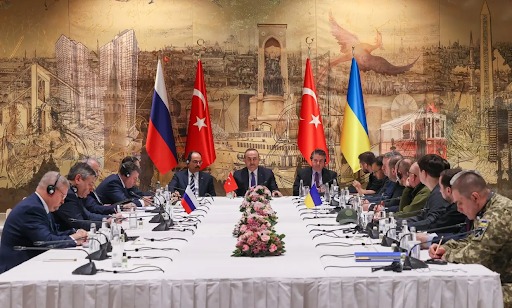Plans for high-level peace negotiations in Istanbul between Russia and Ukraine hit a roadblock after both Russian President Vladimir Putin and former United States President Donald Trump confirmed they would not be present.
The absence of these two major figures has cast serious doubt on the potential impact of the planned discussions, leaving Ukrainian President Volodymyr Zelenskyy in a political limbo.
This week’s diplomatic efforts were centered on Turkey, which had been positioned as a potential neutral ground for direct engagement between the warring sides. Hopes had briefly surged after Putin signaled on Sunday his willingness to hold direct talks with Zelenskyy in Istanbul, suggesting a rare opening in the drawn-out conflict. However, he stopped short of committing to a personal appearance, and as the scheduled meeting approached, the Kremlin confirmed late Wednesday that Putin would not travel to Turkey. Instead, he reportedly held a closed-door meeting with senior aides to prepare Russia’s stance for the talks.
The Kremlin announced that presidential aide Vladimir Medinsky would lead the Russian delegation. Key foreign affairs and defense ministries figures, including Deputy Foreign Minister Mikhail Galuzin and Deputy Defense Minister Alexander Fomin would accompany him. Intelligence official Igor Kostyukov was also named among the group. Kremlin spokesperson Dmitry Peskov dodged questions about Putin’s absence, offering only that the Russian president had other “work meetings” scheduled.
On the American side, Trump, who has taken a vocal stance on the conflict despite not holding office, had pushed for immediate dialogue between Kyiv and Moscow. He urged Ukraine to engage directly with Russia, suggesting that doing so would either pave the way for peace or make the stalemate clearer to global powers. Still, Trump opted not to travel to Istanbul himself. Instead, the U.S. delegation will include close Trump allies Steve Witkoff, Keith Kellogg, and Secretary of State Marco Rubio.
Zelenskyy had remained cautious throughout the buildup to the talks. His participation, he maintained, would only happen if Putin agreed to show up in person. As of Wednesday, he expressed skepticism about the authenticity of Russia’s intentions, pointing to mixed signals in media reports and a lack of clear commitment from Moscow. “We are still waiting to see who exactly shows up,” Zelenskyy noted on social media, implying he was unconvinced that Russia was serious about meaningful dialogue.
The uncertainty surrounding Putin’s and Trump’s absence has raised doubts about whether Zelenskyy will still attend. His chief of staff, Andrii Yermak, was previously expected to be present at the talks, but no official confirmation has been made following the latest developments. Zelenskyy is, however, scheduled to meet Turkish President Recep Tayyip Erdogan in Ankara later on Thursday, suggesting Ukraine may still seek diplomatic leverage even if the broader negotiations stall.
The larger picture indicates a fragile diplomatic effort struggling to gain momentum. While Turkey remains an important player in attempts to mediate the conflict, the absence of Putin and Trump underscores the challenges in orchestrating high-level negotiations when key powerbrokers stay away. For now, the Istanbul talks risk becoming symbolic rather than substantive.



